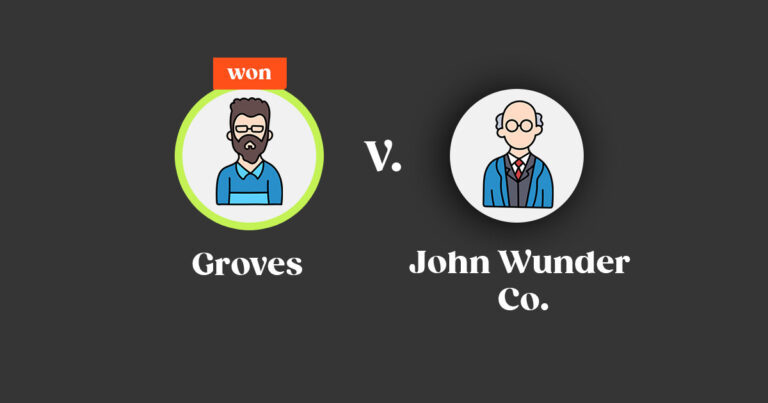Quick Summary
The plaintiff, Groves, leased his land and a screening plant to the defendant, John Wunder Company, for a seven-year term to dig up sand and gravel. However, the defendant breached the contract by only removing the best gravel and leaving the land uneven as per the contract.
The issue discussed in the court was whether the plaintiff is entitled to damages from the defendant for failure to fulfill the contract.
The trial court granted damages for the difference in value, which amounted to $15,000, the defendant appealed and the Supreme Court of Minnesota ruled in favor of the Groves (plaintiff) and ordered the defendant to pay $15,000 as the cost of completion amount, stating that the plaintiff is entitled to the reasonable cost of completing the work that the defendant had promised to do under the contract, and that damages should be based on the reduction in property value caused by the breach.
Rule of Law
In contract law, damages are the amount of money that the court orders the losing party to pay to the winning party as a result of not fulfilling the terms of the contract. This amount is usually calculated as the cost it would have taken for the losing party to fulfill their obligations under the contract.
Facts of the Case
Groves (plaintiff) owned 24 acres of suburban land in Minneapolis. The John Wunder Company (defendant) was a competitor in the same business of excavating and screening gravel. Groves leased his land and the screening plant to Wunder for seven years term to dig up sand and gravel. It was decided that Wunder would return the land in uniform grade and at level with the adjacent road.
Wunder then willfully breached the contract by removing only the best gravel and leaving the land uneven.
The trial court granted damages for the difference in value, which amounted to $15,000. The trial court determined damages as the difference between the property at the time of contracting and its value if Wunder had performed. Groves appealed on the issue of damages to the Supreme Court of Minnesota.
Issue
Is the plaintiff entitled to damages equivalent to what it would have cost the defendant to carry out the work required under the contract?
Holding and Conclusion
Yes.
The plaintiff is entitled to all the damages as per the contract. U.S Supreme Court ordered John Wunder (defendant) to pay the Groves $15,000 as cost of completion amount.
Reasoning and Analysis
The Supreme Court overturned the lower court’s decision and said that the plaintiff could get back the reasonable cost of doing what the defendant had promised to do. The fact that the breach was done on purpose shouldn’t change the number of damages. Damages should be based on how much the property’s value has gone down because of the breach unless the evidence shows that it’s not.
When the court gives one party what the other party had already agreed to under the contract, it does not account for unfair gain.
Relevant FAQs of this case
What legal principle is applied in determining damages in cases of breach of contract?
The court uses two principles, compensatory and expectancy damages, to calculate the compensation for the non-breaching party’s loss or damage due to the other party’s breach. Compensatory damages aim to restore the non-breaching party to the position they would have been if the contract had been fulfilled, and expectancy damages calculate the difference between the promised and the actual performance received.
How does the court ensure fair compensation for the plaintiff?
The court ensures it by considering the market value of the property before and after the breach and by using that as a benchmark for determining the appropriate level of damages to award. The court also considers the cost of restoring the property to its original condition and will not award damages that exceed that cost.
How does the court balance the interests of both parties?
The court balances the interests by ensuring that the plaintiff is fully compensated for the loss they suffered as a result of the breach while also ensuring that the damages awarded do not result in an unfair gain for the plaintiff. The court also considers the defendant’s actions and any mitigating factors that may have contributed to the breach of contract.
References
Was this case brief helpful?
